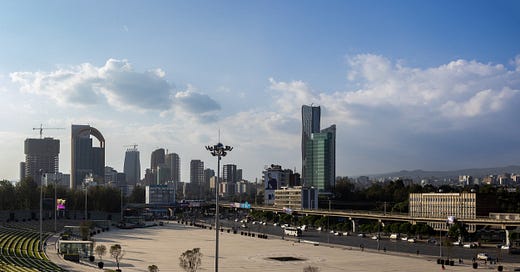Is Ethiopia safe to visit?
Ensuring Safe Travel in Ethiopia's Capital: Addis Ababa
I have visited Ethiopia several times over the past twenty years without incident, even during times of some social unrest. Ethiopians are friendly and welcoming to guests, including visitors to their country. Addis Ababa, the bustling capital city of Ethiopia, is often considered safer than many other heavily travelled cities globally. Violent crime against tourists is almost non-existent. Like any urban space, however, you can find a modest level of crime, such as pickpockets, scams, and theft from parked vehicles.
High-traffic areas, such as Bole Road and the Piazza, are frequent hotspots for such activities. It's important to stay alert at the airport, too, particularly after long flights when exhaustion might make you an easy target. As you leave immigration, make sure your bags are zipped up and with you. Make sure your phone is in a secure location. If it’s just in your pocket or in the front zip pocket of your bag, it’s at risk of disappearing. This has happened in my family more than once.
I feel safe traveling in Addis by taxi, ride share or bus from early morning into the midnight hour. Tourist sites and areas are well-populated and well-guarded.
Evaluating the Internal Political Tensions and Border Situations
Understanding the geopolitical landscape is crucial while visiting any country, Ethiopia included. Political tensions in Ethiopia remain high right now. While traveling in Ethiopia, adopt a neutral political stance on local issues and do not post any political content to social media or elsewhere. Assume all incoming and outgoing messages from your phone are not private.
The situation in the northern border regions of Afar and Tigray make travel unsafe, if not prohibited, at the moment.
Exercising Extra Vigilance in High-Risk Areas
Certain areas within Ethiopia warrant increased vigilance. The Danakil Desert and Erta Ale volcano, for example, have seen a few isolated incidents of tourist attacks.
Border regions adjacent to Somalia and Sudan also carry a heightened risk due to ongoing military operations against insurgent groups. Such regions are prone to cross-border violence and host armed groups hostile to the Ethiopian government. Yet, these high-risk areas are generally far removed from usual tourist destinations.
Today, if you’re visiting outside the Addis Ababa area, you may want to consider hiring a reputable local tour guide ahead of time to facilitate your trip. A local guide is aware of the situation in your area, can navigate any cultural or language understanding, and fend off any potential scammers and nuisances.
Navigating Potential Demonstrations and Disruptions
The Amhara and Oromia regions frequently have political demonstrations. While these are typically peaceful, there's always a possibility of them escalating into violence. As a visitor, it's prudent to avoid such areas when demonstrations are ongoing.
Moreover, in the aftermath of any disturbances, local authorities may impose curfews or temporary restrictions. It's also not uncommon for these areas to experience internet and cellular data outages. Staying informed and adapting to these potential disruptions can help ensure a smooth journey.
Ethiopia: A Generally Safe and Rewarding Destination
The Ethiopia Travel Advisory from the US State Department lists Ethiopia as a Level 3, “Reconsider Travel.” For perspective, other destinations currently at Level 3 include Saudi Arabia, Nigeria, Hong Kong, and Jamaica. Despite the travel warning, Ethiopia remains a vibrant, rewarding destination steeped in rich history. The issues mentioned are not ubiquitous across the country and are less likely to affect vigilant travelers. Hiring reputable local guides, particularly outside Addis Ababa, can help you navigate potential complexities, enriching your journey through this wonderful country.





